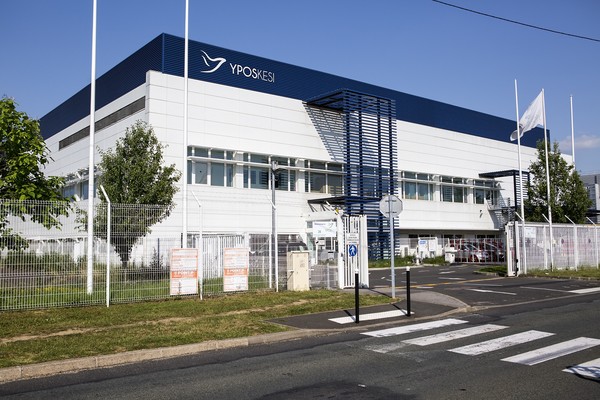Domestic biopharmaceutical companies have set about to expand their overseas production bases of cell and gene therapies, which are emerging as a new promising sector, according to industry sources.
Korean drugmakers show interest in regenerative medicines, including cellular and genetic therapies, believing the market will keep growing rapidly.

SK Bioscience said Monday that its subsidiary in France. Yposkesi, would invest 58 million euros into building a second factory to manufacture cell and gene therapies facility. When completed in 2023 as planned, Yposkesi will redouble its capacity to mass-produce gene and cell medicines to a scale of 10,000 square meters.
SK Bioscience acquired Yposkesi in March to expand its domain to cell and gene manufacturing services and strengthen its CDMO portfolio. Yposkesi is a bio CMO company that provides a gene delivery vector platform, the core of gene and cell therapeutics research and development.
Developing and manufacturing gene and cell therapy requires advanced technology and professionals, and only a few leading global CMOs can handle the task, the company said.
CHA Biotech started building a plant in the state of Texas that meets the current good manufacturing practice standards through its U.S. subsidiary Matica Biotechnology in February.
The company said the plant would have a viral vector manufacturing facility, a key raw material for cell and gene therapy. In addition, the plant will be equipped with a bioreactor with 500 liters capacity and a global-level manufacturing facility when completed.
CHA Biotech plans to strengthen the CDMO business for genetic drugs with its U.S. manufacturing facilities along with the domestic CDMO services for making cell therapies.
Besides, Matica Biopharmaceutical plans to produce viral vectors, including lentivirus and adeno-associated virus.
Another domestic CDMO giant, Samsung Biologics, has recently revealed a plan to diversify its business portfolio by completing the construction of its fourth plant and begin operation in 2023.
Last year, Samsung Biologics opened a CDO research and development center in San Francisco, Calif. The company plans to build more plants in the U.S., Europe, and China.
“We will expand our business to cell therapies and vaccines, diversifying the existing portfolio focused on antibody drugs,” Samsung Biologics CEO John Rim said. “We will hold our position as a leader in the CMO, CDO, and biosimilar field and review new drug business based on accumulated technology and experience.”
Industry experts said gene and cell therapies have shown steep growth despite their high prices. In the U.S. and Europe, gene and cell treatments account for about 50 percent of biologics under clinical development.
According to Deloitte, one of the world’s largest consulting firms, the market is expected to surpass antibody therapy, which is currently the biggest biopharmaceutical market, with annual growth of more than 25 percent until 2025.
“Yposkesi will have a system that can actively respond to mass production and commercialization of gene and cell therapeutics, which are expected to grow rapidly,” SK Holdings Executive Vice President Lee Dong-hoon said.
The French subsidiary will have the highest level of manufacturing capacity in all stages of new drug development, from initial clinical trials to large-scale production after commercialization, and SK Bioscience expects to create various synergetic effects with SK Pharmteco in the overseas market, he added.

